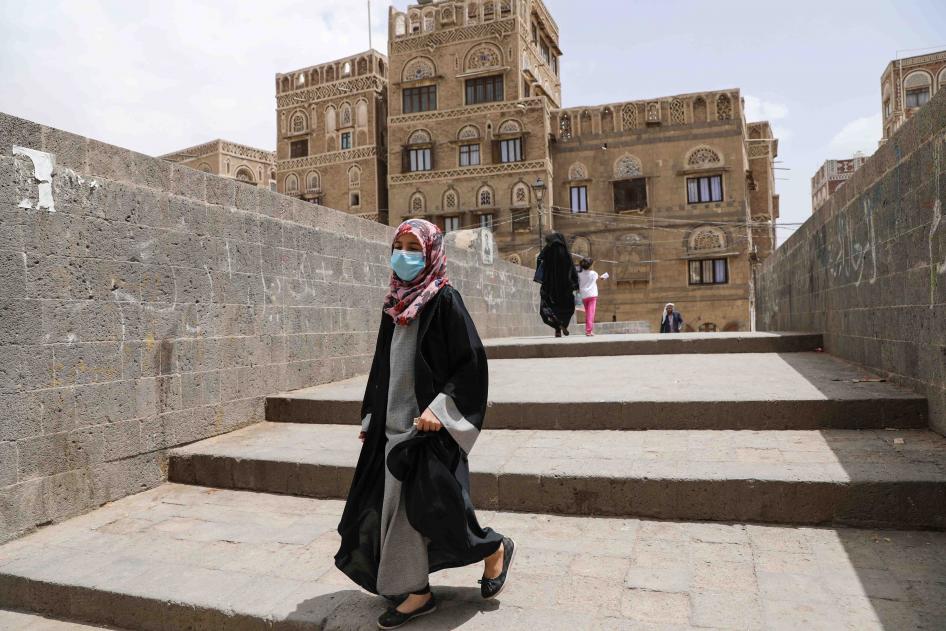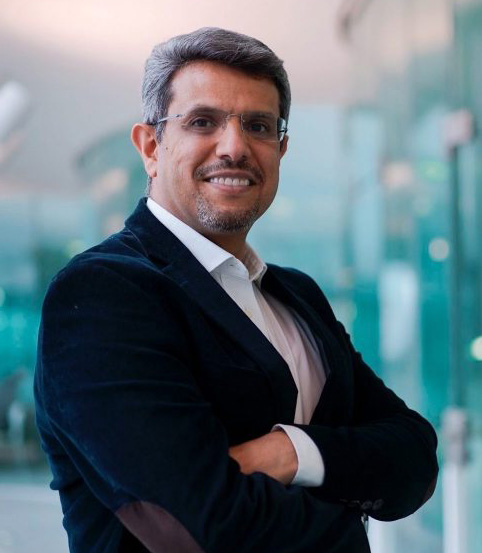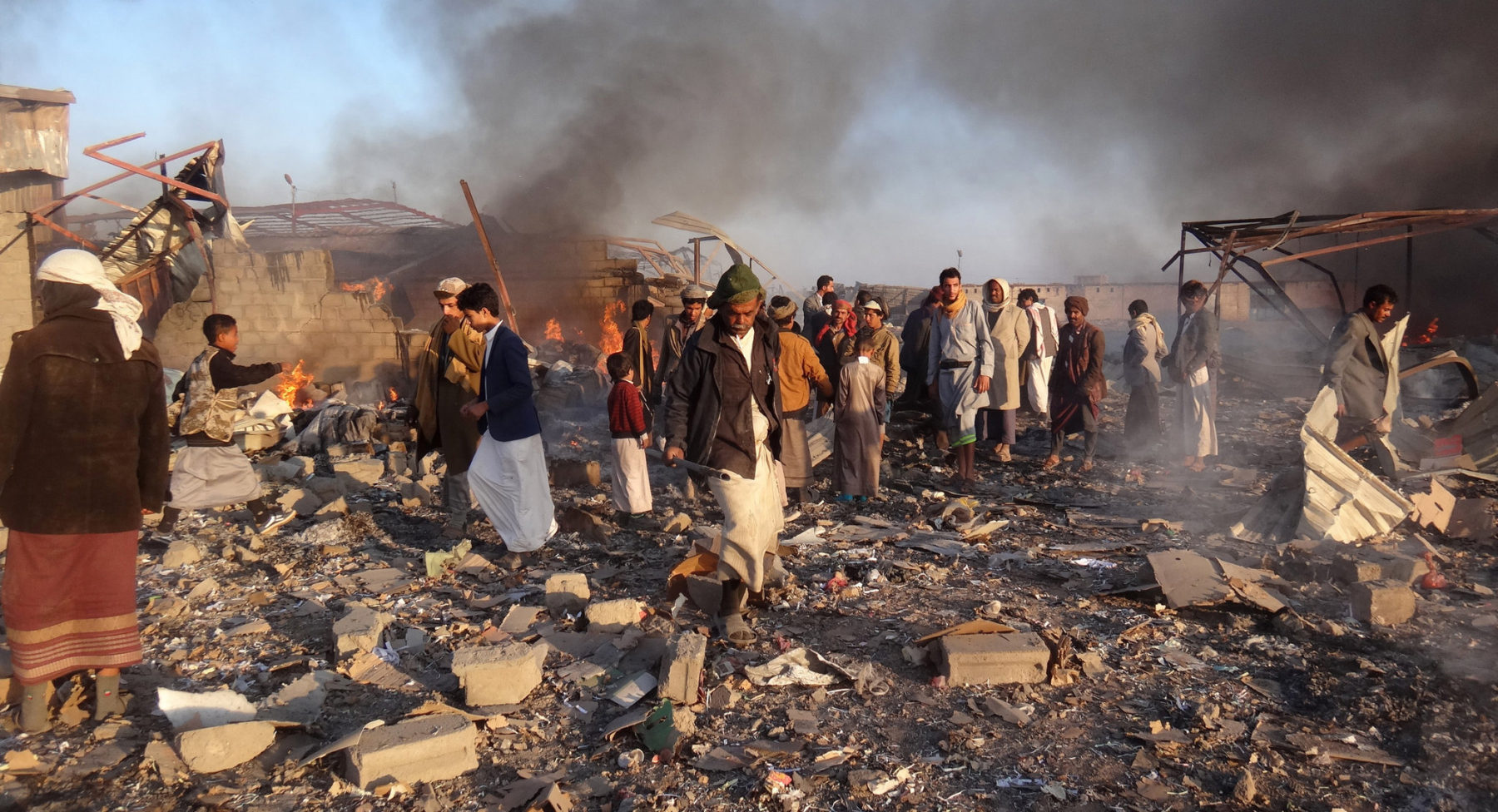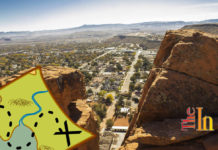
Winning the Battle Against COVID-19 in Yemen,
In the Midst of Continued Conflict, Is Simply
Mission Impossible.
By Hilal Lashuel and Shaker Lashuel
For several weeks now, the W.H.O. has been reporting daily, that there are no confirmed COVID-19 cases in Yemen. Most people in Yemen, who are watching this virus spread around the world like a wildfire, bringing the most developed countries down to their knees, have all realized it was only a matter of time before the virus reached Yemen.
Amidst an already collapsed healthcare system, in a fractured country where local authorities are failing to provide basic necessities such as security, food, and clean water, Yemenis now fear the worst. Since the first case of COVID-19 has now been confirmed, everyone inside and outside Yemen knows that the spread of COVID-19 throughout the country is inevitable.
Yemenis know that neither they nor their country is ready to deal with and fight this deadly and vicious virus, especially since they know that most preventive measures that have proven to be effective elsewhere are difficult to implement in a poor country like Yemen where most national institutions are paralyzed. Their fear is magnified daily by the continuing conflict and armed clashes and battles raging throughout the country, and the failure of the warring parties to address the people’s demands to normalize their lives and bring peace and security.
The international community has also been calling for a cessation of hostility to focus all efforts to fight a common deadly enemy that will kill without consideration of people’s political affiliations, views, or geography. Despite the latest efforts, and the announcement of the Coalition forces to stop all military operations in Yemen starting last Thursday, April 9th, fierce battles continue across multiple fronts in the country. In these challenging and unprecedented times, the people of Yemen find themselves again fighting a battle that they did not provoke or choose. They again see themselves abandoned and let down by their own leaders, the regional powers, and the international community.
“For once, we can only
win together or lose together”
Winning the battle against COVID-19 in Yemen amid the continuing conflict is simply mission impossible. Therefore, a ceasefire is necessary to protect against the spread of COVID-19 and to focus the efforts on a common enemy that threatens all.
Previous attempts to negotiate a ceasefire in Yemen have failed because each side fears their opponent will use the ceasefire to achieve tactical military gains. After five years of endless war, the lesson everyone has learned is there is no military solution for the conflict in Yemen and none of the warring parties can achieve a decisive enough victory to end it. Therefore, implementing a ceasefire to help the country properly prepare for handling a potential COVID-19 outbreak and allowing aid agencies to freely operate and serve the millions in need, will neither change the balance of power nor the course of the conflict
Instead, the hope is, to provide the conflicting parties, intermediaries, and the embedded international community; an opportunity to exercise serious pressure, support confidence-building measures, and lead the negotiations to end this misery for the Yemeni people so they can resume building their country and their lives.
The battle against COVID-19 is not a battle any party can afford to lose, and it certainly is not a battle that one party can celebrate winning while allowing the other side to lose. For once, we can only win together or lose together.
Yemenis are now worried about COVID-19, but they have been living with the devastation of war, a cholera outbreak, and famine for over five years, and they desperately need the international community to put its full weight and pressure to work and push each party to bring this war to an end. The United States, the United Kingdom, France, Russia, Saudi Arabia, Iran, the UAE, Oman, Qatar, and Kuwait can exercise their powers, and accept the compromises necessary to create the conditions necessary to help ensure the country’s readiness to face this deadly virus.
COVID-19 is similar to war in that both have a countable number of casualties, but in Yemen, the magnitude of direct and collateral damage could make those combined numbers pale in comparison. Consequently, the urgency to end the conflict, provide desperately needed aid for Yemenis, and empower the country to face today’s overwhelming challenges, is a moral and ethical responsibility that all shareholders need to equally bare.

Dr. Hilal Lashuel received his B.S. degree in chemistry from the City University of New York in 1994 and completed his doctoral studies at Texas A&M University and the Scripps Research Institute in 2000. After obtaining his doctoral degree, he joined the Picower Institute for Medical Research in Long Island New York as a researcher. In 2001, he moved to Harvard Medical School and the Brigham and Women’s Hospital as a research fellow in the Center for Neurologic Diseases and was later promoted to an instructor in neurology at Harvard Medical School.
In 2005 Dr. Lashuel moved Switzerland to join the Brain Mind Institute at the Swiss Federal Institute of Technology Lausanne (École polytechnique fédérale de Lausanne, EPFL) as a tenure-track assistant professor in neurosciences. Currently, Prof. Hilal Lashuel is a Yemeni-American Associate Professor of Neuroscience at the Swiss Federal Institute of Technology in Lausanne. http://lashuel-lab.epfl.ch (LMNN website).

Dr. Shaker Lashuel was born in 1971, in Taiz, Yemen. His family’s connection to the United States began in the 1930’s, but his father was able to make the journey in 1957. Shaker grew up in Yemen, but settled in NYC in 1987 it has been his home since then. In NYC, he completed his high school education, graduated with a B.S. in Geology from Brooklyn College, and then M.S. in Secondary Science Education from LIU and a Doctorate in Educational Technology from Pace University. Although his undergraduate education was pointing him toward a science field job as a geologist, his passion for teaching and education pulled him to the NYC public school system. As an educator working for the public school system, he worked as a teacher and as a district administrator serving the children of the NYC public school system for more than 15 years. Dr. Lashuel is now pursuing a career in non-profit organizational leadership in an international setting in addition to writing on a variety of topics including personal development and education. Dr. Shaker Lashuel is currently the Manager of Scientific Support Programs: Almuallem Center for Knowledge and Education.
Viewpoints and perspectives expressed throughout The Independent are those of the individual contributors. They do not necessarily reflect those held by the staff of The Independent or our advertising sponsors. Your comments, rebuttals, and contributions are welcome in accordance with our Terms of Service. Please be respectful and abide by our Community Rules. If you have privacy concerns you can view our Privacy Policy here. Thank you!
Click here to submit an article, guest opinion piece, or a Letter to the Editor





